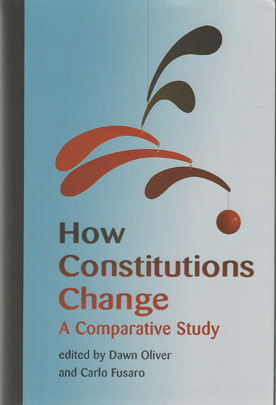
This set of essays explores how constitutions change and are changed in a number of countries, and how the 'constitution' of the EU changes and is changed. For a range of reasons, including internal and external pressures, the constitutional arrangements in many countries are changing.
Constitutional change may be formal, involving amendments to the texts of Constitutions or the passage of legislation of a clearly constitutional kind, or informal and organic, as where court decisions affect the operation of the system of government, or where new administrative and other arrangements (eg agencification) affect or articulate or alter the operation of the constitution of the country, without the need for government to resort to legislation.
The countries in this study include, from the EU, a common law country, a Nordic one, a former communist state, several civil law systems, parliamentary systems and a hybrid one (France). Chapters on non EU countries include two on developing countries (India and South Africa), two on common law countries without written constitutions (Israel and New Zealand), a presidential system (the USA) and three federal ones (Switzerland, the USA and Canada).
In the final chapter the editors conduct a detailed comparative analysis of the jurisdiction-based chapters and explore the question whether any overarching theory or theories about constitutional change in liberal democracies emerge from the study.